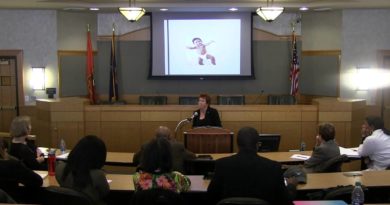Can a Bankruptcy Get Rid of Private Credit Card Debts in Alabama
Yes, bankruptcy can often help individuals get rid of a lawsuit related to credit card debt. When you file for bankruptcy, an automatic stay goes into effect that prohibits most creditors from taking further action to collect a debt. This includes lawsuits, wage garnishments, and other collection efforts. However, there are some limitations and exceptions to this rule, so it’s important to understand how bankruptcy can impact a lawsuit related to credit card debt.
There are two main types of bankruptcy that individuals may consider when facing a lawsuit related to credit card debt: Chapter 7 bankruptcy and Chapter 13 bankruptcy.
Chapter 7 bankruptcy is often referred to as a “liquidation” bankruptcy because it involves the sale of non-exempt assets to pay off as much of the individual’s debt as possible. After the sale of assets, any remaining unsecured debts (such as credit card debt) may be discharged or eliminated. If you are facing a lawsuit related to credit card debt and are eligible for Chapter 7 bankruptcy, you may be able to have the lawsuit dismissed, and the debt discharged through the bankruptcy process. However, it’s critical to note that certain types of debt, such as student loans and certain taxes, are generally not dischargeable in Chapter 7 bankruptcy.
Chapter 13 bankruptcy is often referred to as a “reorganization” bankruptcy because it involves the creation of a repayment plan to pay off a portion of the individual’s debts over a period of three to five years. If you are facing a lawsuit related to credit card debt and are eligible for Chapter 13 bankruptcy, you may be able to have the lawsuit dismissed and pay off the debt through the bankruptcy repayment plan. In Chapter 13 bankruptcy, the automatic stay goes into effect as soon as the case is filed and remains in place for the duration of the bankruptcy case.
While bankruptcy can often help individuals get rid of a lawsuit related to credit card debt, it’s essential to understand that bankruptcy is not the right solution for everyone. It’s important to carefully consider all of your options and seek the advice of a Montgomery bankruptcy attorney to determine the best course of action for your specific situation.
In order to be eligible for Chapter 7 bankruptcy, you must pass a means test, which compares your income to the median income for your state. If your income is above the median income, you may not be eligible for Chapter 7 bankruptcy and may need to consider Chapter 13 bankruptcy instead.
If you are facing a lawsuit related to credit card debt and are considering bankruptcy as a potential solution, it’s important to seek the advice of a bankruptcy attorney. A bankruptcy attorney in Prattville, or elsewhere in Alabama, can help you understand your options and guide you through the bankruptcy process.
Attorney Steven A. Harris regularly blogs in the areas of family law, bankruptcy, probate, and real estate closings on this website. Mr. Harris tries to provide informative information to the public in easily digestible formats. Hopefully you enjoyed this article and feel free to supply feedback. We appreciate our readers & love to hear from you!
Sharing is caring:



![DHS Proposes USCIS Fee Increases [2023] DHS Proposes USCIS Fee Increases [2023]](https://www.immi-usa.com/wp-content/uploads/2023/02/Screen-Shot-2023-02-05-at-12.09.43-PM-268x300.png)



